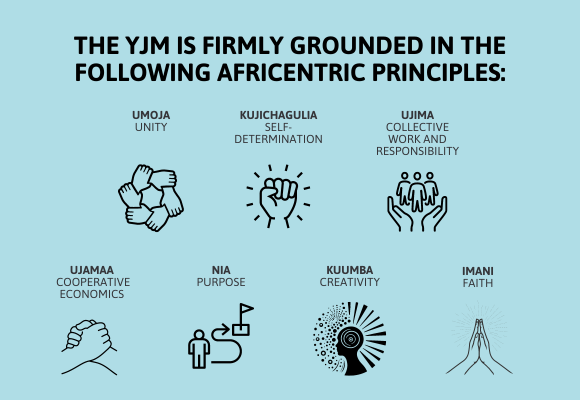Fresh off the launch of our strategic plan, we are pleased to unveil our Youth Journey Map (YJM). This approach supports young people, particularly Black youth experiencing homelessness in Toronto, by integrating Africentric principles that centre their cultural heritage and individual challenges, empowering them as authorities in their own lives.
As we embark on this transformative journey, Eva’s is committed to fostering an inclusive and equitable environment for all youth. We are putting the infrastructure in place to serve some of the most vulnerable in society: Black youth experiencing homelessness with all their intersecting identities. In doing so, we can ensure our programs and services will be beneficial to all who need them, regardless of race or background.
Breaking Down Systemic Barriers and Building Community
At Eva’s, we recognize systemic barriers like anti-Black racism significantly impact the lives of the young people we support. The YJM serves as a blueprint for designing and implementing Eva’s programs and services for Black youth. By addressing how anti-Black racism and discrimination affect the social determinants of health, our model aims to dismantle barriers and empower young people to thrive.

Our approach recognizes young people as the experts in their own lives and celebrates their strengths. “Our objective is to provide intentional, culturally responsive support for Black youth, facilitating their journey towards stability, housing, and independence,” says Shequita Thompson-Reid, Senior Director of Equity at Eva’s.
“Our Youth Journey Map is a tangible representation of youth seeing themselves reflected in every aspect of our programming,” underscores Shequita. “It allows young people to anchor themselves in a community of their choosing, pursue meaningful goals, and cultivate social and cultural capital even after they leave Eva’s.”

Navigating Life’s Challenges
“Young people desire agency over their futures, to make decisions for themselves. This model nurtures them while giving them the space to make mistakes,” Shequita says. “Indigenous, Black, racialized, and 2SLGBTQ+ youth have had to grow up so fast and haven’t had the room to make mistakes. In this model, they can do so in a safe environment while learning to navigate systemic oppressions.”
The YJM supports Black youth in navigating the complexities of life with purpose and a network of resources. Shequita sums it up: “Eva’s is the catalyst to building and broadening the young people’s sense of community. Through our work together, they will build a strong sense of independence and support that will help them thrive for years to come.”
